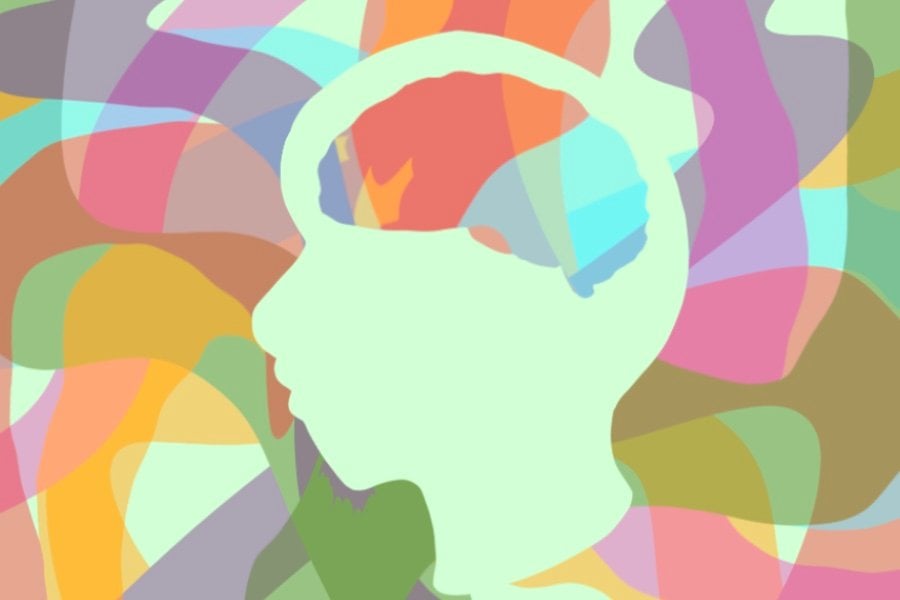Judith Herman discusses sexual violence and healing justice during Take Back the Night Week
Daily file illustration by Olivia Abeyta
Judith Herman is clinical professor of psychiatry at Harvard Medical School
April 26, 2023
Content Warning: This article contains mentions of sexual violence.
Judith Herman, director of training at the Victims of Violence Program at Cambridge Hospital, discussed sexual violence and restorative justice at a Tuesday event for Take Back the Night Week.
Take Back the Night Week, a week of programming dedicated to supporting survivors of sexual violence, is during April, which is Sexual Assault Awareness Month. The talk was sponsored by the Center for Awareness, Response and Action at Northwestern. Feminist screenwriter Kyra Jones facilitated the conversation on Zoom.
CARE Director Carrie Wachter said this year’s SAAM theme is Drawing Connections: Prevention Demands Equity.
“The campaign demands that all individuals, communities, organizations and institutions understand their own interpersonal identities in order to transform themselves and the system surrounding them to build racial equity and justice,” Wachter said.
Herman began the discussion by reading excerpts of her new book, “Truth and Repair: How Trauma Survivors Envision Justice.”
She said loved ones often encourage survivors to take legal action, but it is better to ask the survivors for what they need in their healing process.
“When a person has been a victim of violence, survivors justice challenges us all to think first of all about centering justice on that person, in order to make reparations for the harm and to provide what is needed for healing,” Herman said.
Herman addressed common misconceptions about what justice for survivors looks like.
According to Herman, people think survivors are vindictive, and wish to inflict pain upon their perpetrators. Instead, most survivors are focused on their healing process.
She said the inaction of bystanders –– those aware of a sexual assault, but who choose to stay silent –– can hurt survivors more than the cruelty of the perpetrator.
“People want for the shame to be lifted from them and placed on the perpetrator, and they want the healing to really go on in their relationships with the community,” Herman said.
Herman said an acknowledgement, an apology for complacency and amends from bystanders can be healing for survivors.
Jones, who is also the former assistant director of CARE, agreed and said students who have come to CARE are often not interested in reporting punitive measures. This could be partly due to bullying and public shaming, which can follow reporting a sexual assault.
“Frequently, students students who have been impacted by sexual violence are trying to just figure out the relationships in their life,” Jones said.
Herman said college-aged individuals are the most likely group to experience sexual violence. Young military officers and agricultural industry workers are even more likely to experience violence, she added.
Because of the prevalence of sexual assault in relatively small campus communites, Herman said college can be a space to bring on intellectual political change and explore alternative forms of justice.
Herman said some universities have implemented healing circles, where the “harmed person” and the “harm doer” talk to one another under the supervision of a restorative justice expert in a dialogue witnessed by the community.
Herman said these circles have been beneficial, but they require consent by both parties, and rely on facilitating conversations rather than an adversarial system –– like a courtroom. She added this approach is not intended for serial offenders, premeditated attacks and violent offense.
Herman also offered advice for the friends and family of survivors.
“Survivors have so much trouble in the conventional justice system because they don’t have a say in what happens,” Herman said. “The trauma is all about being helpless and disempowered, and so anything you can do to empower the survivor is helpful.”
Herman concluded by mentioning the impacts of stereotyping and prejudice in conversations about sexual assault. She said survivors are most likely to be assaulted by those within their own communities.
According to Herman, survivors deserve vindication, apology and amends from their communities.
“When the community comes through with these reparations, the damaged relationship between the community and the survivor is healed,” Herman said.
Email: KristenAxtman2025@u.northwestern.edu
Twitter: @KristenAxtman1
Related Stories:
— Keynote speaker for Sexual Assault Awareness Month Chanel Miller speaks on reframing her narrative



